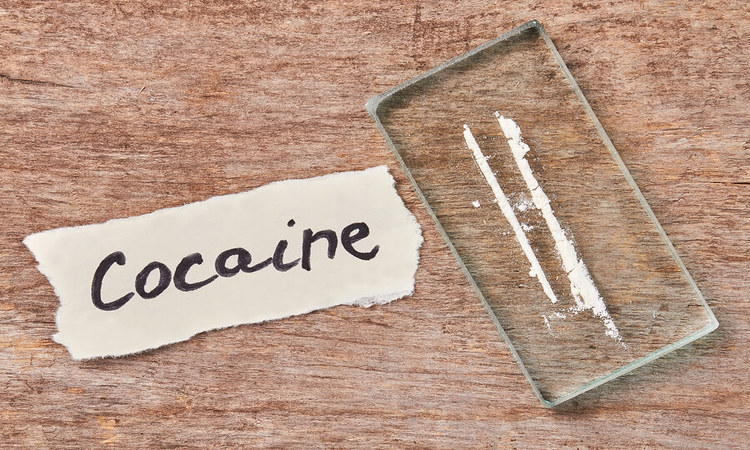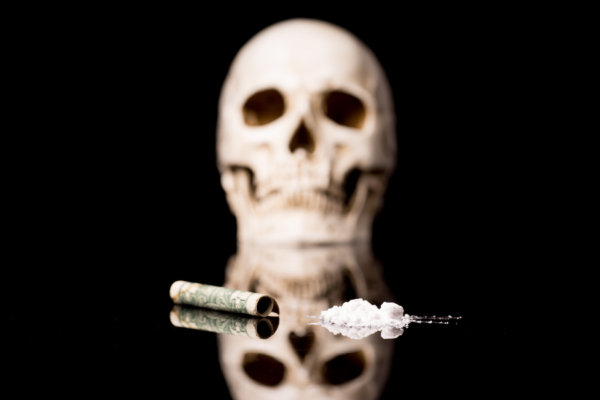
Taking a Cocaine Drug Test: What You Need to Know – After the last dose has been administered, cocaine can remain in a person’s body anywhere from 3 to 6 hours. Also, cocaine use produces a metabolite called benzoylecgonine (BE), which can take up to two days to be completely cleared from the body.
Dose and Delivery Method
As a general rule, the higher the dose, the more time it will take for cocaine to be eliminated from a person’s system, and the longer it will be detectable on a cocaine drug test. The method by which the drug is administered is also a significant factor.
Injecting cocaine will produce a fast, more intense high, but it also clears the body more rapidly. The half-life for this delivery method is only around five minutes, and it fully clears the system in about a half an hour.
Snorting cocaine usually leads to a high that continues for 10-30 minutes, and it takes no longer than three hours to be eliminated.
Smoking freebase cocaine extends the half-life to around 45 minutes, and it can take as long as four hours for the drug to be expelled.
Oral consumption can delay the onset of the high for an hour or so, and effects can persist for around two hours thereafter. For this route of administration, the half-life is around an hour, and it may take longer than five hours for the drug to be fully cleared.
Duration of Use and Purity Level
Long-term users often have a tendency to retain cocaine in their bodies for an extended period, where it has accumulated in fatty tissues. For this reason, withdrawal can take longer, and associated symptoms are often more intense.
Moreover, the longer someone uses cocaine, the more challenging it becomes for their body to expel it. Over time, the body’s ability to eliminate the drug becomes less efficient, and it may eventually lose this function altogether.
Purity level can also be a factor—the more refined the cocaine, the more powerful the effects will be, and the longer it will stay in a person’s system. Other factors include metabolism, body mass, age, and pre-existing health conditions.
Cocaine Drug Testing
Cocaine drug tests do not reveal how long cocaine stays in a person’s system, but some toxicological methods can detect traces of cocaine for up to three months following the last use. For example, a blood test can identify the presence of cocaine in the body for the first 24 hours, but a urine test can detect cocaine from anywhere between 2-30 days. Hair follicle tests can detect traces of cocaine use for as long as three months.
Cocaine Drug Testing – Cocaine Excretion
Some research has revealed that the amount of the drug consumed can also be a factor in how long cocaine metabolites (BE) remain in a user’s system. Other factors that can impede the excretion of BE include:
- Alcohol consumption
- Weight/obesity
- Inactivity and sedentary lifestyle
- Lack of hydration
- Excessive caffeine use
Cocaine Intoxication

Retention of cocaine in the body causes cocaine intoxication, a condition that can result in negative side effects in addition to its desirable effects. Cocaine use can be deceptive, and users can still experience an overdose even after many of the effects appear to have abated.
Users often take doses in rapid succession, believing that they are safe to use again because the drug’s most pronounced effects have subsided. Unfortunately, using consecutive doses of cocaine places the user at an increased risk for overdose as the drug proceeds to accumulate in the system with each subsequent use.
Using an extreme amount of cocaine or using it in high concentrations can induce the following adverse effects:
- Anxiety and agitation
- Chest pain and pressure
- Elevated heart rate
- High blood pressure
- Increased body temperature
- Sweating
- Nausea
- Tremors
- Confusion
A cocaine overdose can also lead to muscle damage, kidney damage, brain hemorrhage, stroke, or sudden death due to organ failure.
If you or someone you know has used cocaine and appears to be suffering from any of the following symptoms, please seek emergency medical help or call 911 immediately:
- Very high blood pressure
- Irregular heart rate
- Very high body temperature
- Agitation or confusion
- Seizures
- Irregular heartbeat
Mental Health Conditions
Excessive doses of cocaine can result in other serious symptoms of mental health problems, including depression, suicidal thoughts, mania, and paranoia. Occasionally, psychiatric symptoms can manifest in those using much lower levels of cocaine. What’s more, street cocaine is often adulterated with other potentially life-threatening substances that can contribute to their own set of symptoms and unpredictable effects.
Treatment for Cocaine Addiction
Cocaine addiction can become a potentially life-threatening problem that negatively impacts the life of the person suffering as well as those around him or her. It should be taken very seriously, and if you or someone you know is abusing cocaine, you are urged to seek professional help immediately.
Recovery By The Sea features comprehensive treatment programs that include evidence-based services, such as psychotherapy, counseling, group support, aftercare planning, and much more.
Contact us today and end your suffering—or the suffering of someone you love. We are dedicated to helping those who need it most to break free from substance abuse and foster healthy and fulfilling lives!
READ THIS NEXT : Signs Of Cocaine Use